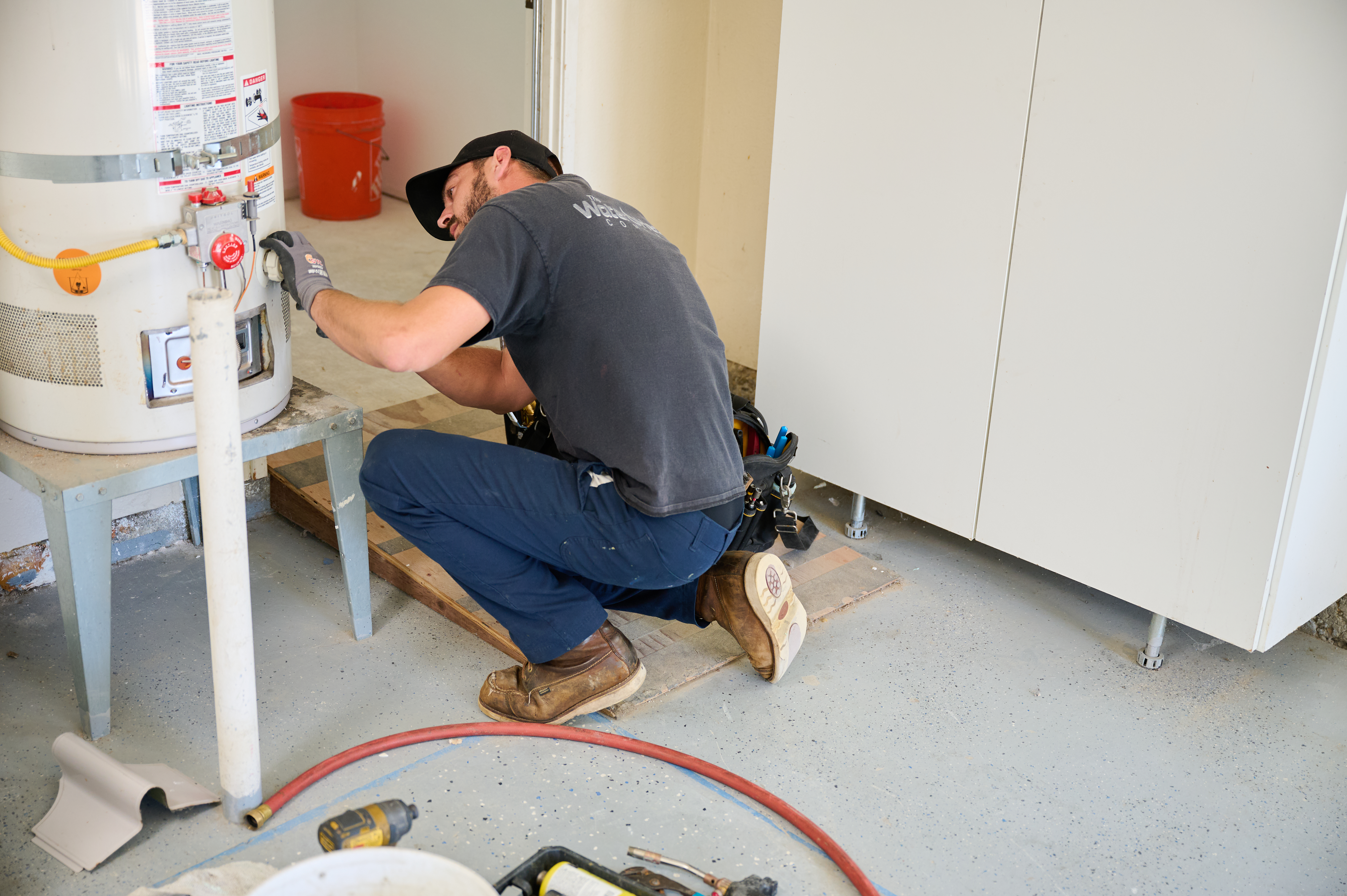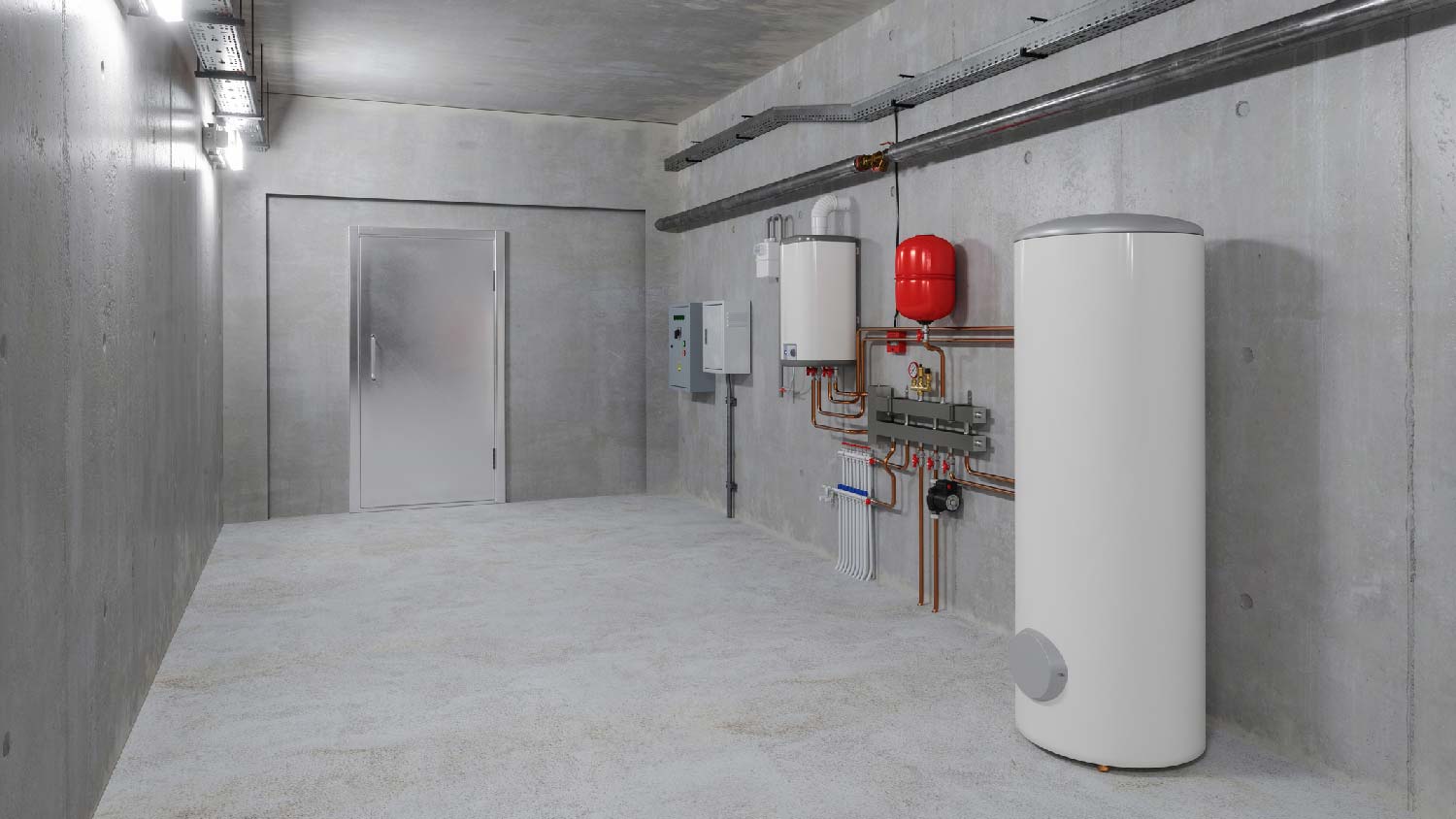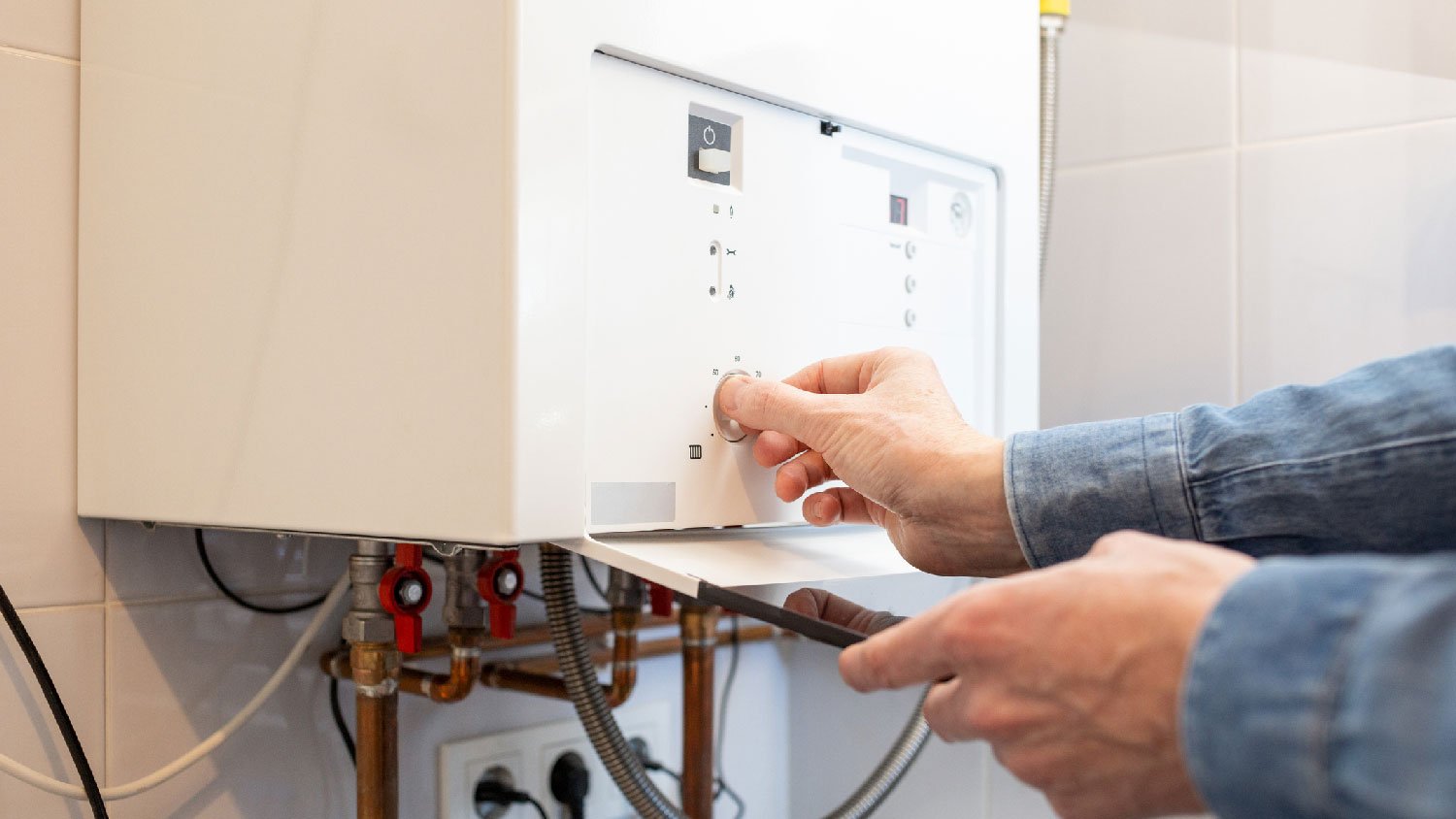
Tankless water heater costs in Seattle, WA depend on the size of your water heater, location, fuel type, and more. Keep reading to calculate your expenses.
Bring the heat with a few simple fixes


Sediment buildup is a common cause of a pilot light on but no hot water.
A rusty thermocouple can also cause your water heater not to yield the right water temperatures.
Another cause includes a tripped breaker or blown fuse.
Contacting a plumber near you is the safest way to troubleshoot a faulty water heater.
Ice-cold showers are anything but pleasant, so if you can’t get any warm water, you’ll want to get to the solution quickly. However, if your water heater won't turn on even though your pilot light is on, this could leave you scratching your head.
If the pilot light is on, but there’s no hot water several potential culprits are at play. Let's cover how to diagnose a water-heater burner not lighting to avoid a water heater catastrophe in your home.
We highly recommend inspecting your water heater annually for signs of degradation. If you spot any potential warning signs, consider contacting a local plumber.

Start with a visual assessment of your water heater components. If you think that the burner isn't on because you can't hear the familiar sound, remove your cover plate to confirm that you can't see the burner firing.
Once you confirm that you're not getting a light, move to your temperature dial. Here's how you want to troubleshoot:
Turn the dial to "vacation" or "low"
Go back up to your desired temperature
Check for a light
But what if that doesn't do the trick?
Let's bring it up a notch. This time, start by switching to "vacation" or "low" mode. The difference is that you're now going to go up 10 degrees to 20 degrees higher than your desired temperature. You might just see the light kick on.
This trick often works because thermostats will lose accuracy through something called "drifting" as they get older. Just make sure you're not letting your water get too hot when you use this trick. Faucet temperatures of 120 to 140 degrees Fahrenheit are considered safe for avoiding scalding. If you have children or elderly family members living in your home, scale that down to 120.
If the dial trick doesn't work, you could have a sediment issue. Sediment accumulation at the bottom of a tank can easily cause your thermostat to malfunction. The sediment buildup acts as insulation that causes your thermostat to reach the indicated temperature before your water does.
This accumulation is a common cause behind warm water that never fully heats up. Signs of sediment accumulation include popping or banging noises, as well as dirty-looking or bad-smelling water. If you see any of these signs, it’s time to call a pro.
Your thermocouple is the sensor that measures temperature. You can check for a few things on the thermocouple before calling a plumber to help you with a replacement. However, if you don't want to deal with fiddling around with the thermocouple, then a plumber may be your best option. With this in mind, here’s what to check for before you call in the pros.
Rust is a common cause of thermocouple dysfunction. Here's how to troubleshoot a suspected rust issue on a thermocouple:
Turn off the gas valve to the pilot.
Remove the cover plate.
Check to see if the thermocouple is buried in rust.
Most people prefer to hire a local plumber at this point to service the thermocouple. But if you know what you’re doing, you can attempt to brush or vacuum the burner element and pilot area. Just make sure you're letting everything cool completely before touching parts.
Using a shop vacuum over a household vacuum is preferred. You'll need to dump out the debris in a fire-safe way that includes leaving the vacuum and filter to ventilate for at least 12 hours.
You also have to be careful about not breaking off the pilot or gas fittings when cleaning the rust.
If rust isn't the issue, check that the sensor is properly immersed in the pilot flame. The thermocouple may have slipped out of place. If the thermocouple isn't sensing enough heat, it prevents the gas control valve of the main burner from opening.
If none of those troubleshooting points work, replacing your thermocouple is the last option. Thermocouples cost between $10 and $20. Most plumbers charge between $75 and $150 for labor on this type of job.
If the options above don’t restore your much-needed hot water, consider the less common reasons why the hot water isn’t working, such as:
Power malfunction: If you have an electric hot water heater, check to see if it’s still connected to power. Locate your breaker box or electrical panel and look for any flipped switches or blown fuses.
Bad thermostat: Both gas and electric water heaters have a thermostat that regulates the water temperature. Check if the temperature looks correct (between 120 to 140 degrees). If the temperature isn’t right then you may need to replace the thermostat.
Gas leak: If you have a gas water heater and you hear a hissing sound, then you could have a gas leak on your hands. If you suspect this, you need to call your gas provider right away, and they can come out and confirm the presence of a leak and perform any necessary repairs.
Many people don't want to troubleshoot a burner because it can be dangerous. Not only could you damage your water heater if you do something wrong, but true to its name, it can be hot to the touch.
While it never hurts to check for the obvious fixes, you should avoid touching components of the heater if you don't have expertise in that area. Most local gas plumbers can diagnose the issue within a few minutes to give you an answer about whether you're looking at a simple fix, a sign your water heater is about to fail, or anything else in between.
The average cost to repair a water heater falls between $225 and $975, with most plumbers charging between $45 and $200 per hour.
Keeping your water heater problem-free starts with proper maintenance—and what better way to stay on top of your unit than to have a reputable local plumber on call to save the day? With this in mind, you’ll want to vet at least three prospective plumbers thoroughly before deciding on a plumbing company. Here are some questions you can ask before you decide on a pro.
Is there anything I can do by myself to resolve the issue?
How many years of experience do you have?
Do you have licensing?
Are you insured?
What type of water heater are you most experienced in repairing?
Does your company offer workmanship warranties or satisfaction guarantees?
What’s your estimate for repairing my water heater?
What does the payment plan look like?
How long does it take to repair a water heater with no hot water?
Is there anything I need to do before you arrive to repair my unit?
How do you handle dispute resolutions?
365 Plumbing exceeded my expectations! They fixed a water heater issue promptly and were extremely professional. The technician was knowledgeable and courteous, and the work was done right the first time. Great company to trust for plumbing needs!
When we discovered a problem with our heat exchanger, we were worried about the cost of repairs. However, thanks to the warranty, the repairs were completely covered. It not only saved us a significant amount of money but also provided peace of mind, knowing that our investment was protected.
Buying and installing a new hot water heater is no one’s idea of a great time, but these guys made it as enjoyable as possible! Fast (like their name), professional, friendly, knowledgeable. Would definitely recommend!
Beware heavily marketed, currently busy contractors. I believe Beacon Plumbing is far too successful currently to care about the quality of your experience. My story is about a $23,000. water heater and a broken window. I purchased a commercial water heater for my business in November 2018...
I was given an estimate to fix it. I expected that to have been covered in what I had already paid. I never did get the shower drip fixed. He looked at an instant hot water in the kitchen sink, pushed the lever and it worked. Took 2 minutes at the most. There was just air in the line....
It went great. Replaced one ceiling light as planned, recommended a better light (led flat panel) than I'd planned for in the kitchen, and changed a third light that wasn't planned because I liked the idea of a led flat panel for the laundry room once I saw it. Also replaced two wall...
We found Aarden Air and Dan (owner and installer) almost by accident, and have been extremely satisfied with the installation, service, and prices associated with a variety of heating system and air conditioning services. Dan is very knowledgable, competent, and pleasant. He understands our...
The work turned out great! We were very satisfied. They were a reference from my insurance company. We did have some water issues with our basement and they were able to give us a great reference there too. They did careful and beautiful work which is not easy on an older house! They were...
From average costs to expert advice, get all the answers you need to get your job done.

Tankless water heater costs in Seattle, WA depend on the size of your water heater, location, fuel type, and more. Keep reading to calculate your expenses.

Find out the average tankless water heater repair cost, what impacts pricing, and how to save. Get expert tips to plan your repair budget with confidence.

Running out of hot water too quickly or hearing strange noises when you call for hot water? Use this water heater repair cost guide to see what a fix will cost.

Learn all the factors that influence the cost to install a heat pump water heater at your home.

Gas water heater not lighting? There are a handful of reasons an issue like this happens, but most of the causes are simple and inexpensive to fix.

If your showers are lukewarm, you could have a water heater issue. This guide explains how to replace a water heater element to solve the problem.